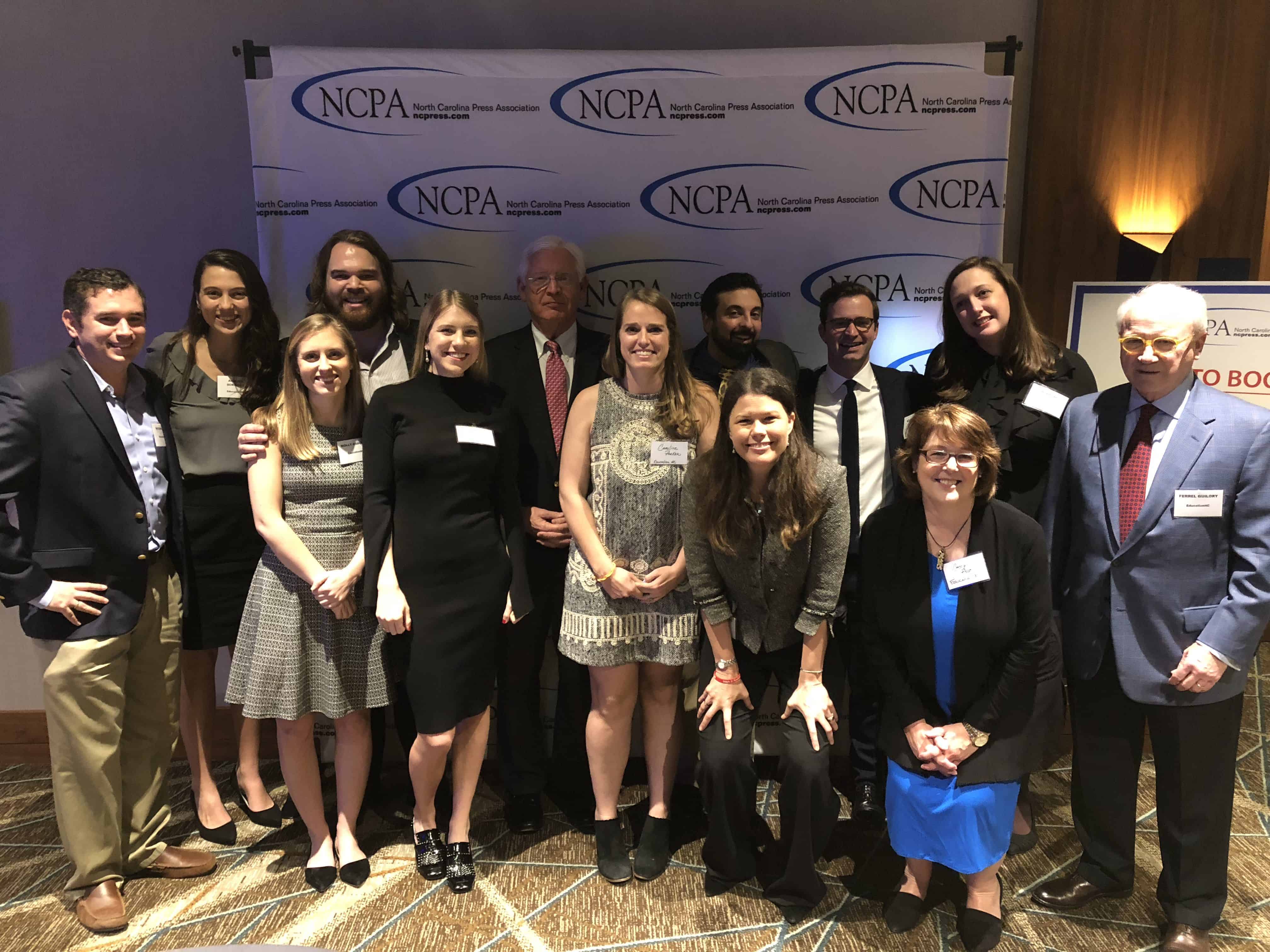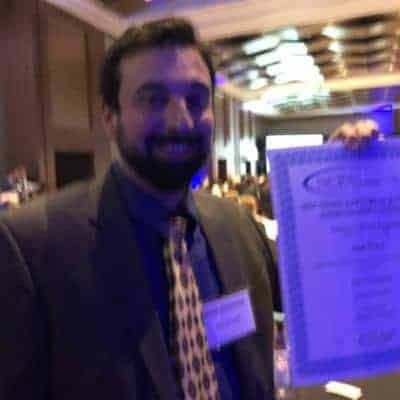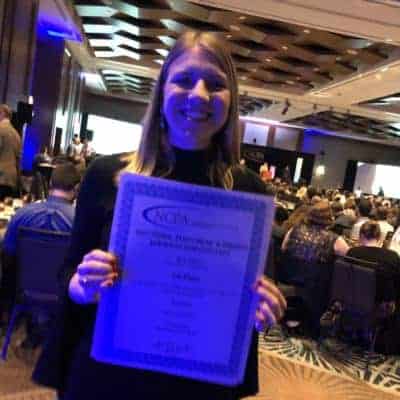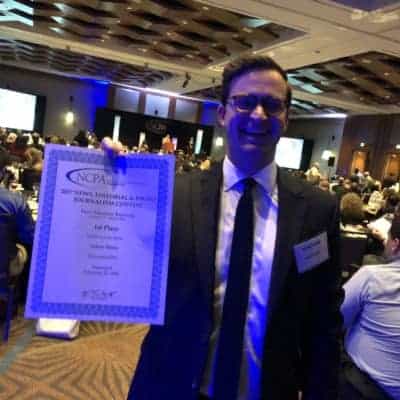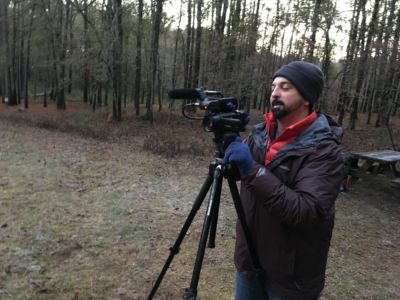When I made the career move from law to journalism, more than a few people questioned the wisdom of my decision. “Why would you shift to a dying industry?” they asked. The concern was not without factual support; the decline of newspapers has its own Wikipedia entry. While a place in the modern-day encyclopedia does not a fact make, the shifting ecosystem of journalism and the challenges media face are undeniable. But this week’s gathering of the North Carolina Press Association (NCPA) signaled something different.
At a community engagement panel, journalists from the mountains to the coast shared ways they are seeking to redefine their work, connect with their audiences, and continue to serve the public interest. The room buzzed with an enthusiasm for finding creative ways to engage people using technology and a renewed fervor for the vital roles media has traditionally played in communities. I had the opportunity to share about the ways we use our Reach NC Voices tools to understand our audience, engage with sources, and hear from voices across the state. In an era where distrust and decline of media is popular cocktail hour conversation, it was heartening to see the passion of our state’s journalists — from small towns to big cities — for understanding their communities and providing space for their stories to be shared.
EdNC is not the traditional NCPA member; we do not have a print publication, and we have existed for only three years. Many of our colleagues in newspapers work for institutions that originated and thrived in a form that predates our nation. While we differ in size, subject, medium — and sometimes even in approach — the gathering reminded us of our commonalities: a commitment to informing the public and a desire to be key part of the communities we serve.
The conference culminated in an awards banquet where EdNC was honored to receive five awards. Three reporters received individual honors, highlighted below, but our entire staff took the stage to receive them — a visual reminder of our dedication to the concept of teamwork and our belief that each member is crucial to our collective success.
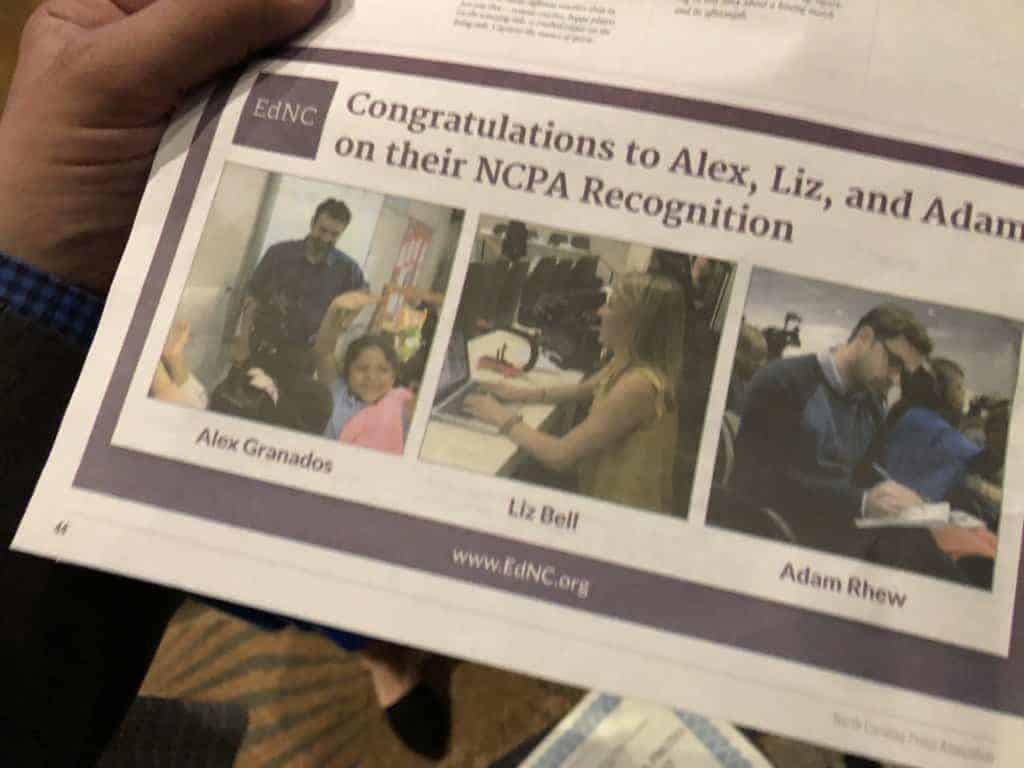

The Awards
Liz Bell took home first place in the online “Video” category for the film, “Seven months later, Edgecombe residents cope with Matthew aftermath.”
Video: Seven months later, Edgecombe residents cope with Matthew aftermath
Bell also received third place in “Education Reporting” for her work on the effects of Hurricane Matthew on schools and students.
Alex Granados received second place in “Election/Political Reporting” for a series on the proposed legislative expansion of teacher preparation programs.
Tweak to educator preparation bill could favor Texas organization
Adam Rhew won first place for “News enterprise reporting” for a series examining youth suicide in North Carolina.
EdNC won second place in the online category for “Appearance and Design.”
